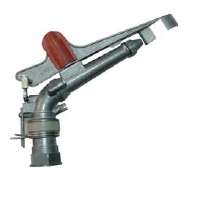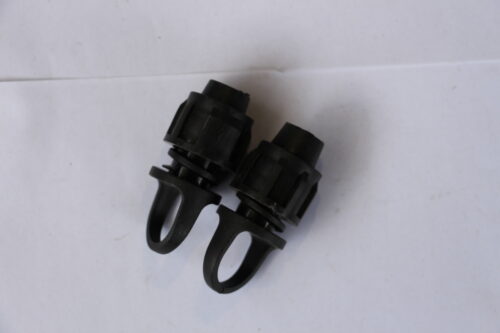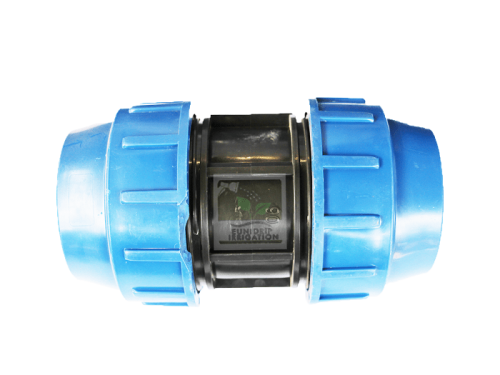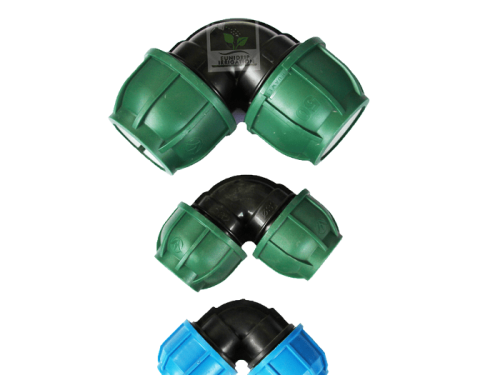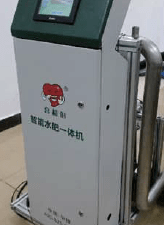Description
Impact rain gun sprinkler of 40 meters diameter for sale
Eunidrip irrigation systems stocks impact rain gun sprinkler of different sizes ranging from one inch(1”) to two and a half- inches(21/2”) that irrigates various diameters per farmer request or lands acreage also known as the wetting diameter. Different impact gun rain has different specifications like water flow rate, operating pressures and the wetting diameters
A Rain gun is a high-performance micro-irrigation device and it is designed for a variety of uses and applications where relatively high flows and extended radius of the water throw are desired.
They are majorly applied in agroforestry fields, fruits orchards, pastures, herbs, hedges plants, large plantations of cash crops and also in horticultural crops.
Ideally, most impact rain gun discharges water ranging from 8,000 liters per hour to 50,000 liters per hour as indicated by societies of agricultural engineers and the manufacturers. These discharge can be also be quantify in terms of cubic meter per hour (m3)
The commonly used rain rain gun sprinklers have a wetting diameter or water throw ranging from 20 meters to 50 meters but the commonly used diameter is 50 meters because of its price and functionality
These diameters are very critical in designing the amount of water required at the source and the number of impact rain gun sprinklers required in the farm.
Specifications of Rain gun available at Eunidrip Irrigation Shop
We stock various rain gun sprinklers that work under high pressures and low pressures. The low pressure rain gun sprinklers are for the small farm application like an acre while the high pressure sprinklers are normally used on large farms like four acres onward
For efficiency on operations, most rain guns are accompanied by double nozzles that helps to break the water jets close the rain gun tripod however, the smaller nozzles placed at the top of the gun normally performs this task of water breaking
Design Features
- Used for irrigating the large area in one time.
Rain guns are used for irrigating large field areas at once. The guns irrigate the land with minimum labor and electricity requirements. While rain gun irrigation, pests, and insects get washed away. - Available with an adjustable jet breaker.
The adjustable jet breaker allows droplet size & impact adjustment facility for delicate crops. It provides uniform irrigation. - Minimum components to operate the system.
Component necessities are minimum and the components are lightweight and sturdy with high workmanship. Thus, there are maintenance requirements even after a long period of use. - Available with interchangeable nozzles.
The interchangeable nozzles provide the flexibility of irrigation for various crop and soil stags. Interchangeable nozzles are suitable for all types of soil/crop stages.
The table below shows the rain gun application in terms of diameter throw and the water discharge per hour (irrigation kings website)
| Size of the rain gun(inches) | Wetting diameter(meters) | Water discharge(meter cubic per hour) |
| 1.0 | 20 | 6-7 |
| 1.5 | 30 | 10 |
| 2.0 | 40 | 18 |
| 2.5 | 50 | 25 |
Uses of impact rain gun sprinkler
Rain gun sprinklers are normally used on plants/crops that are not affected by the fungal diseases like Anthracnose; Botrytis rots; Downy mildews; Fusarium rots; Powdery mildews; Rusts; Rhizoctonia rots; Sclerotinia rots; Sclerotium rots which are brought about by excess water on the leaves or dumbness
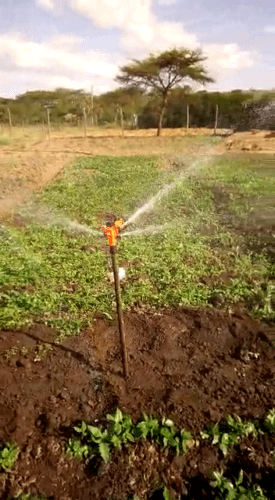
Impact gun sprinklers are normally applied in irrigating pastures, tall bushes orchards and maize plantations of large acreage. This is because of their water usage and radius of throw which covers large distances within a single rotation.
Application areas for rain gun
- Forestry for seedlings and mature trees
- Pasture crop like Lucerne, Rhode
- Herbs mint, lemongrass, chives
- Hedge plants. kei apple, bougainvillea
- Horticulture such as cabbage, spinach and kales
- Broad acre crops. wheat, barley, canola, sugarcane and corn/ maize
- Fruit orchards. citrus (orange, tangerine, and lemon), avocado, macadamia, paw paw, guava, mango, tree tomato, and passion
The working components of these impact gun sprinklers require high pressure withstanding components like couplings and water pipes. This is because the most gun sprinklers operate at pressures of 40 psi to 120 psi which are considered to be high pressures.
Rain gun sprinkler installation
Rain gun sprinkler installation requires pipes of high operating nominal pressure of 8 bars and above. This is to avoid the rapture or breakages of the pipe.
Commonly pipes that are used for the rain gun installation posses the following characteristics:
- High wear and tear resistance
- Resistant to weather conditions
- Resistance to pressure
- Voltage cracking resistance
- Durable
- Corrosion resistance,
- Easy and reliable,
- Reduced friction losses and lower flow noise
Normally the rain gun sprinklers have inside threaded ends enabling them to be effectively joined or coupled with other reducing couplings to make it compatible to the main line
Components of rain gun sprinklers
- Main Components of Gun Sprinkler.The rain guns are inclusive of several components. All the components are lightweight, steady and easy to install.Pumping unit: Contains booster pumps for small rain guns and water pumps for big rain guns.
Main Line Pipes
- This may include polyvinylchloride pipes, high density polyvinyl pipes, aluminum or galvanized pipesSub‐main Line Pipes
can comprise of Rain Guns, Impact Type and Pelican Gear Drive TypeSkipper
• Tripod Stand for Rain Gun
• Tri-Pod StandFittings & Accessories.
• Hdpe female Coupling, Barbed male Coupling, Male Coupling and PlugsFiltration units: contains screen filters to capture the debris.
Rain gun irrigation design and installation
On the installation and design of the rain gun, the irrigation designer must understand the working pressure and the flow rate of the gun, plant water requirement per irrigation cycle, type of the plant, climatic conditions and the topography or the slope of the farm.
After considering these factors, proceed with the pump sizing. Pump sizing is the process of matching the pump water pressure and flow rate to that of the rain gun against a gradient to ensure the wanted quantity of water is discharged at the designated region.
Pump sizing is the mother of all design of rain gun sprinklers since the pressure from the pump is what will exert pressure in the water to rotate the gun.
When sizing the water pump, first consider the head of the gun. Let’s say the gun has a head of 30 meters or 40 meters which is the normal working pressure of most guns with the working flow rate of 25 cubic meter per hour the water pump size one will require will be at least twice times the head of the gun (30mx2=60) and twice the water flow rate of the gun (40 cubic meter per hour).
Rain gun sprinkler installation continuation
After sizing of the water pump then proceed to rain gun installation. For installation of the gun, one will need, delivery pipe, pipe fittings e.g. tees, elbows and adapters of the required sizes, hacksaw and the blades, safety gears and any other tool and good sound of mind hehehe
- Connect the rain gun head to the tripod stand and ensure the stand is firm enough to avoid toppling when the gun is rotating
- Attach a PVC, HDPE, or delivery pipe to the rain gun sprinkler inlet at the base. At this point consider the threads. From the thread positioning either internally or externally one is able to choose the pipe to gun adapter
- Adjust the water gun sprinkler to the desired angle of irrigation water delivery. This is done by adjusting clips below the gun head.
- Start your irrigation water pump at 20 starting /hour then adjust the throttle with time.
- Walk along the delivery pipes to the gun point to check for any leakages because leakages reduce the pressure of the water pumps therefore, resulting into lower efficiency.
The differences between rain gun and the sprinklers
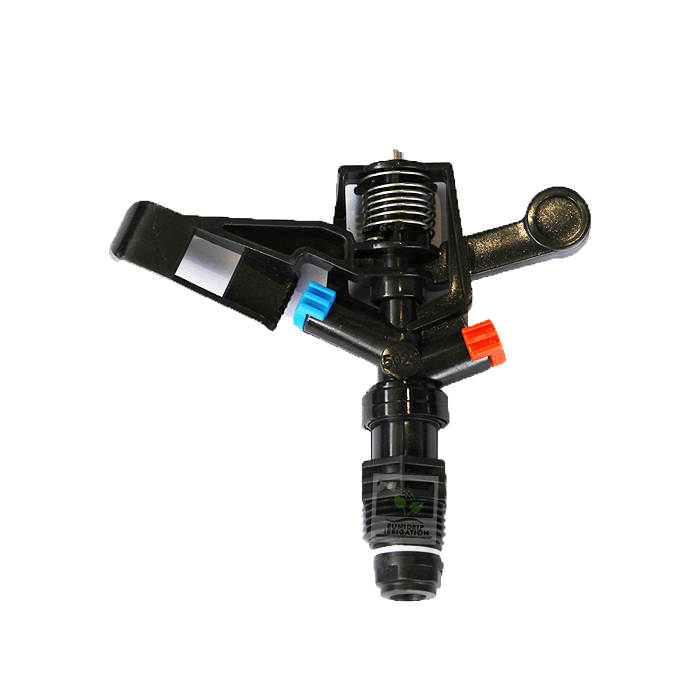
- Impact rain gun sprinkler is a large area covering Sprinkler generally replacing 8 to 15 sprinklers as per the model chosen and thus reducing labor requirement to great extent in shifting the sprinklers in the farm area.
- Rain gun also gives choice to use as full or partial circle rotation with droplet size management mechanism for optimum working under windy conditions
- Turbine drive model are gear driven wherein its rotation speed is unaffected by changes in wind velocity and thus offering highest uniformity of rain all over the area and hence are more costly.
- They are best under windy conditions at site, and preferred for high precision sprinkling.
- impact rain gun is suitable for most high crops like fodder, maize, vegetables like Onions, carrots, grains and, pulses, plantation crops such as coffee, tea, cardamom, sugarcane etc.,
Advantages of rain gun
- Highly energy efficient, Long lasting and trouble free
- Since the jet sprinkles over a large area, it avoids the setting up a large number of smaller jets.
- Reduces labor cost, because the pipeline within the estate is minimized so also the number of jets.
- The precipitation varies with the nozzle size, but unlike conventional jets, overlapping is not necessary.
- This reduces the time required for irrigation as well as the savings on diesel.
- Time is the essence in Robusta sprinkling and in the eventuality of an insufficient natural rain, more are can be covered with the help of these jets.
- The jets are rugged and only require periodic greasing. Ease of installation, assembly and maintenance
- The trajectory of the throw of water is such that the damage to pepper vines is negligible.
- Part circle adjustments, saves water from going into neighboring plantations.
Disadvantages of rain gun
- The rain gun and the raiser pipes are very heavy.
- High day time temperatures result in evaporation loss.
- Not suitable in areas with high velocity Winds.
- Prohibitive cost of rain guns.
- Repairs by qualified personnel
Rain Gun Installation Guide.
Rain gun Installation procedure.
- Ensure all materials are present including pipe fittings, elbows, sockets, connectors and accessories, delivery pipes, blades and safety tools.
- Pump sizing is a very crucial thing to consider first before handling anything else. The pump size should be twice the diameter of the gun and twice the flow rate of the gun.
- Connect the rain gun head to the tripod stand and ensure the stand is firm enough to avoid toppling when the gun is rotating
- Attach a PVC, HDPE, or delivery pipe to the rain gun sprinkler inlet at the base. At this point consider the threads. From the thread positioning either internally or externally one is able to choose the pipe to gun adapter
- Adjust the water gun sprinkler to the desired angle of irrigation water delivery.
- Start your irrigation water pump at 20 starting /hour then adjust the throttle with time.
- Walk along the delivery pipes to the gun point to check for any leakages because leakages reduce the pressure of the water pumps therefore, resulting into lower efficiency.
Precautions to Be Taken While Installation & Dismantling of Rain Gun:
- The nozzle size should be according to designed rating while replacing the nozzle using the right tool.
- While sprinkler is in rotation, particularly in case of impact Rain Gun, one should stay away about 1meter to avoid any harm from its fast reverse rotation.
- Make the droplet size bigger depending upon the need of location/ crop stage, use the diffuser screw for the same.
- Avoid its more use, in case of high wind velocity.
- In case Rain Gun is non-rotating, please contact the nearest dealer to analyze the cause & its rustication.
- The technician should use the recommended tools for the opening of different parts.
impact rain gun sprinkler design specification.
- The best rain gun sprinkler should have a flow rate of between 10000litres/hour to 25000litres/hour.
- Discharge pressure should range from 50psi (3.7bar) to 120psi (10bar).
- They appear in colors of black, silver and blue.
- They operate at a wetting diameter of between 50metres to 70metres.
- Most of them have internal diameters ranging between 1-inch to 3-inches.
- They require high pressure pipes to withstand wear and tear, harsh weather conditions, corrosiveness, voltage cracking resistance and to maintain their standards of durability and reliability.
- Most rain guns have double nozzles that break the water jets just close to the tripod stand for better throw efficiency.
Advantages of Rain gun sprinklers.
- used in any landscape whether in mountains, hills or valleys.
- Faster in operation.
- plants including tees, orchards, and other cash crops can be used with this method of irrigation.
- It’s reliable and efficient.
- It’s durable as compared to other systems.

